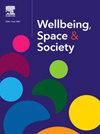多民族城市人群中公园游览、户外游戏与儿童社会情感能力的关系
IF 2.2
Q2 GEOGRAPHY
引用次数: 0
摘要
增加进入绿色空间的机会和频繁的户外游戏已被证明与儿童社交情感能力(SEC)的提高有关,但这一发现可能并不适用于所有社区和环境。本研究对2568名儿童(7.1-12.6岁,平均9.8岁)进行了横断面分析,评估儿童报告的户外游戏和公园访问之间的关系,以及来自英国多种族城市队列出生在布拉德福德(BiB)的样本中SEC的两个方面。量表采用优势与困难量表(SDQ)、总困难量表(TDS)和SDQ亲社会量表(SDQ亲社会量表)进行测量。增加户外活动与提高SEC两个方面的得分呈线性相关;公园访问与SEC的关联主要为零或不一致。种族和区域剥夺的分层表明,与亚洲裔人群相比,白人群体的关联通常更强。然而,分层也表明,不同的民族可能在一周的不同时间从户外活动中获益,这反映了休闲时间和文化习俗的不同利用。有一些证据表明,与最贫困的人群相比,最贫困的人群的关联更强。户外游戏可能是儿童SEC的一个重要因素;然而,影响因种族出身和地区贫困而异,表明这种联系受到人口统计和地点等因素的影响。确保儿童的环境为儿童提供安全,文化上适当的当地空间,并增加儿童在户外玩耍的机会,有可能改善儿童的安全。本文章由计算机程序翻译,如有差异,请以英文原文为准。
The association between park visits, outdoor play and child social-emotional competency in a multi-ethnic, urban cohort
Increased access to greenspaces and frequent outdoor play has been shown to be associated with improved social-emotional competency (SEC) in children, but this finding may not be generalisable to all communities and contexts. This study undertook a cross-sectional analysis of 2568 children (7.1–12.6 years old; mean 9.8) assessing the association between child-reported outdoor play and park visits, and two aspects of SEC in a sample from Born in Bradford (BiB), a multi-ethnic urban cohort in the UK. SEC was measured by the Strengths and Difficulties Questionnaire (SDQ) Total Difficulties Score (TDS), and the SDQ prosocial subscale. Increased outdoor play was linearly associated with improved scores in both aspects of SEC; park visits were predominately null or inconsistently associated with SEC. Stratification by ethnicity and area deprivation displayed that associations were generally stronger in the White origin compared to Asian origin populations. However, stratification also showed that different ethnic groups may gain benefits from outdoor play at different times of the week, reflecting different uses of leisure time and cultural practices. There was some evidence that associations were stronger in the least deprived populations compared to the most deprived populations. Outdoor play may be an important contributor to SEC in children; however, effects vary by ethnic origin and area deprivation, showing the association is influenced by factors such as demographics and place. Ensuring children’s environments offer safe, culturally appropriate, local spaces for children to play, and increasing opportunities for children to play outdoors has the potential to improve children’s SEC.
求助全文
通过发布文献求助,成功后即可免费获取论文全文。
去求助
来源期刊

Wellbeing Space and Society
Social Sciences-Social Sciences (miscellaneous)
CiteScore
2.70
自引率
0.00%
发文量
46
审稿时长
124 days
 求助内容:
求助内容: 应助结果提醒方式:
应助结果提醒方式:


